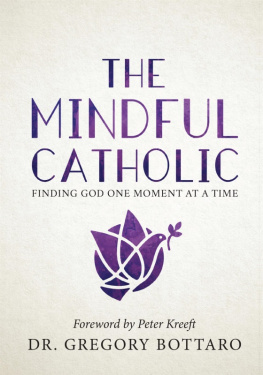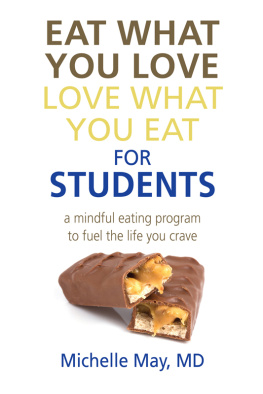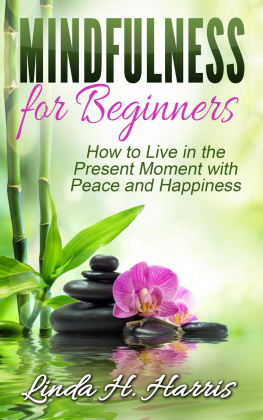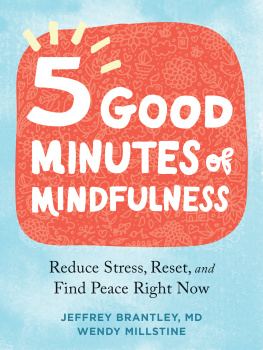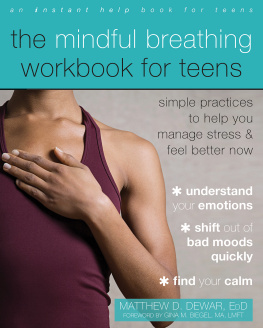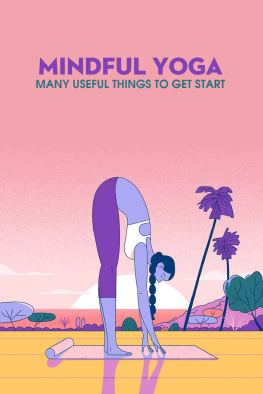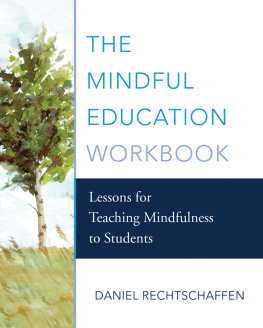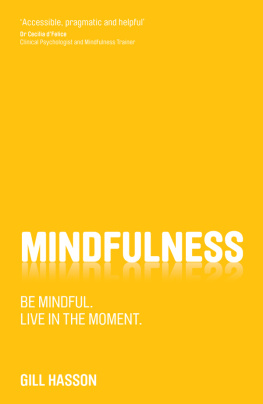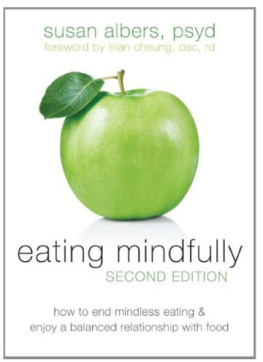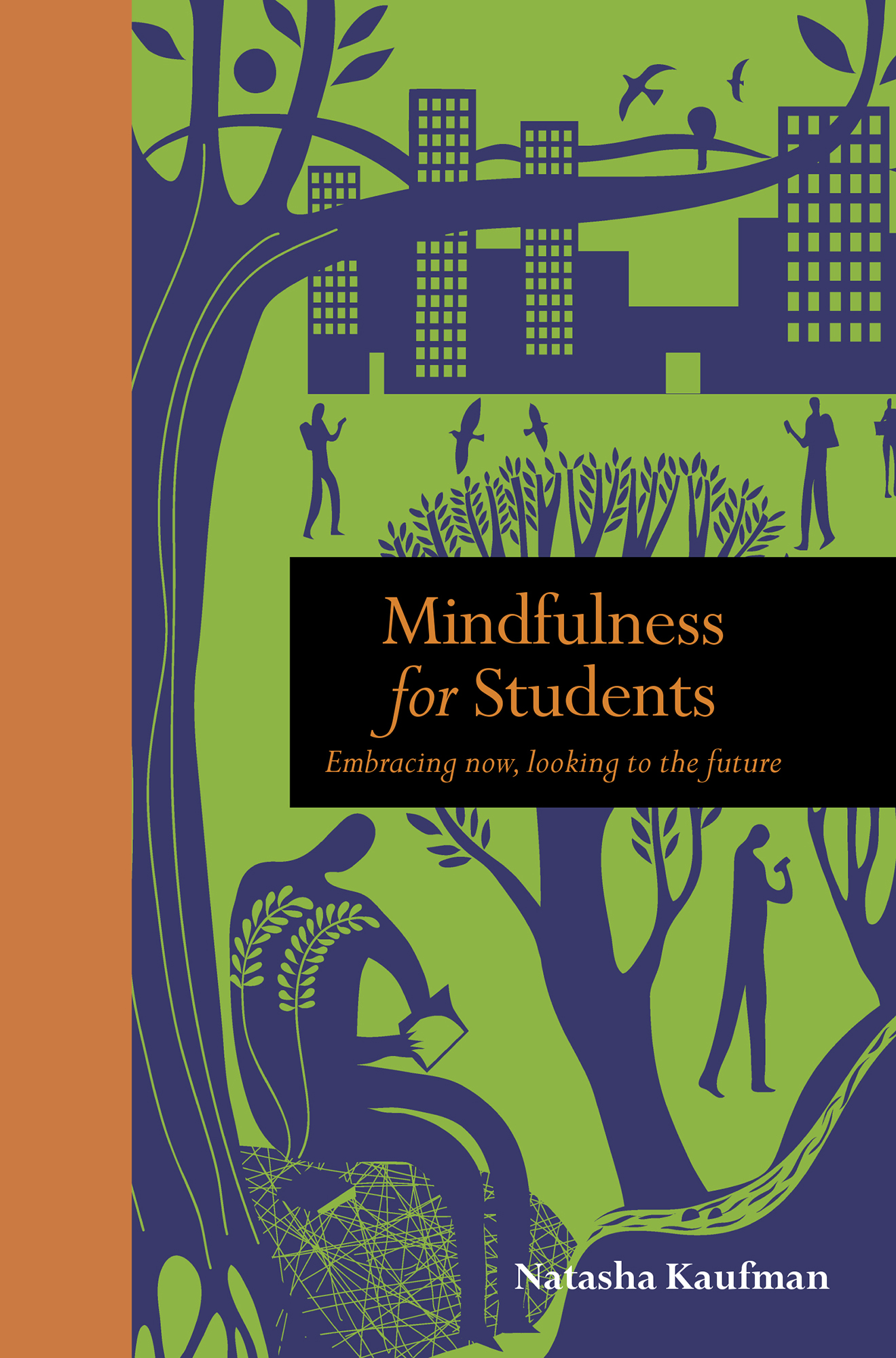WHY BE MINDFUL?

Mindfulness is a mental state of being in the present moment. By practising mindful meditations or being mindful in your daily routine, you can gain a sense of perspective and learn to acknow-ledge thoughts and feelings with acceptance. You will be able to live life in the moment, enjoying positive experiences and coping much better with stressful ones.
I T IS IMPORTANT TO BECOME AWARE of what you are feeling mentally and physically without wanting to try to change your thoughts or feelings. Simply acknowledge the way things are in the present moment, knowing that everything changes and nothing stays the same. A thought passes, a feeling subsides; much like an inhalation and exhalation, it comes and goes. When we start applying this idea to everyday life, an issue that feels hard to tackle can be seen for what it is a moment in time that will pass.
It might seem at times that there is no escape from our stresses and worries. These feelings can be exacerbated if we are constantly attached to our phones, which can lead to a detachment from our sense of selves. Whether we feel scrutinized by the expectations of our society, culture, peers or social media, we often judge and feel judged. When we learn to be mindful, we can become more self-accepting and we may find we become less judgemental of others.
For students, the fast pace of life, the pressure to succeed and get a job, and the anonymous and isolating aspects of communication through social media make mindfulness all the more relevant. You might recognize that its easy to become introverted or go over the top (depending on your personality and social confidence), indulging in excessive drinking, eating badly or skipping sleep, and ignoring mental and physical signs of stress. Yet as much as this may seem like an overwhelming time it is also a valuable one. There are opportunities to connect with like-minded individuals and to become immersed in a subject you love. For many, the student experience is a rite of passage from their teens and family life to adulthood and independence. Whatever your experience as a student, there are mindful practices that you can learn that cost nothing but that can make your transition smooth and life-affirming.
Like our bodies, which need to be nourished with a balanced diet and regular exercise, we also need to replenish our minds. Just as a tightly toned physique isnt achieved overnight, neither is a mindful state. The first time we try to meditate it may feel frustrating, dull and pointless. Nevertheless, with patience and perseverance, what initially feels like a chore will eventually feel natural and effortless. When we consistently practise mindfulness, it can help reduce stress, anxiety and depression, and improve concentration, clarity and self-control.
This book aims to introduce you to the many benefits of mindfulness by looking at different ways to be mindful: breathing, eating, exercising, resting, studying and communicating. There will be opportunities within each chapter to have a go at mindful meditations that take between a mere three and up to 20 minutes. There is no right or wrong approach, just what works for you. This book can not only help you to pass your exams or do well in a job interview, but it will also teach you how to live your life now and in the future. Mindfulness is a way of being. You can choose to be mindful and to live your life being in the moment, living fully and wholeheartedly, aware of yourself and others.
WHERE DID MINDFULNESS ORIGINATE?

The buzz around mindfulness is spreading, through conversations, news reports, social feeds and adverts. It is making headlines in the West now, but Eastern cultures and religions have been practising mindfulness for thousands of years. Why has it taken Western communities so long to reap the rewards of this ancient philosophy?
M INDFULNESS BEGINS FROM A RELIGIOUS and spiritual place, although in the West it is predominantly practised from a non-religious angle. Its origins are in Hinduism and Buddhism. Elements of mindfulness have been inter-woven with Hinduism for centuries. Age-old Hindu scriptures focus on acceptance, silence and meditation, which are at the core of mindfulness. The aim of meditation is to lose the ego and to allow the mind to reach a state of calmness so it can fully experience the beauty and wholeness of God. Today, people who do not follow any religion also meditate. They are not trying to experience the wholeness of God but of themselves. Jon Kabat-Zinn, a leading pioneer in mindfulness meditation, brought the practice into mainstream medicine in 1979. He argues that we are often unaware of our own sense of worth. Perhaps this lack of completeness and self-fulfilment is because we are rarely taught the importance of tuning into ourselves and realizing we are just right, just as we are.
McDonaldization
Populations around the globe are now at the crux of McDonaldization, a term coined by sociologist George Ritzer. Industrialized societies have become as fast paced as a fast-food chain, with the need for results in as little time as possible. We want our burger or chicken nuggets with extra fries and we want them now. Although we feel satisfied when we take our first bite, in a few hours we are hungry again. We think that the bigger our burger is, the better we will feel. But can quantity replace quality? Just like our lives, which move at the same rapid speed as the service at fast-food restaurants, we are losing the ability to wait a bit and to savour our meal. As a result, we may end up leaving full but still unsatisfied. Its important that we regroup, think again and re-evaluate how we have decided to live our lives.
Although there are elements of mindfulness embodied in Hinduism, this form of meditation has truly grown and flourished within Buddhism. It is believed in Buddhism that the first stages of Enlightenment can be reached by practising mindfulness, and mindfulness meditation is very much engrained in Buddhist customs. The word mindfulness comes from the word


